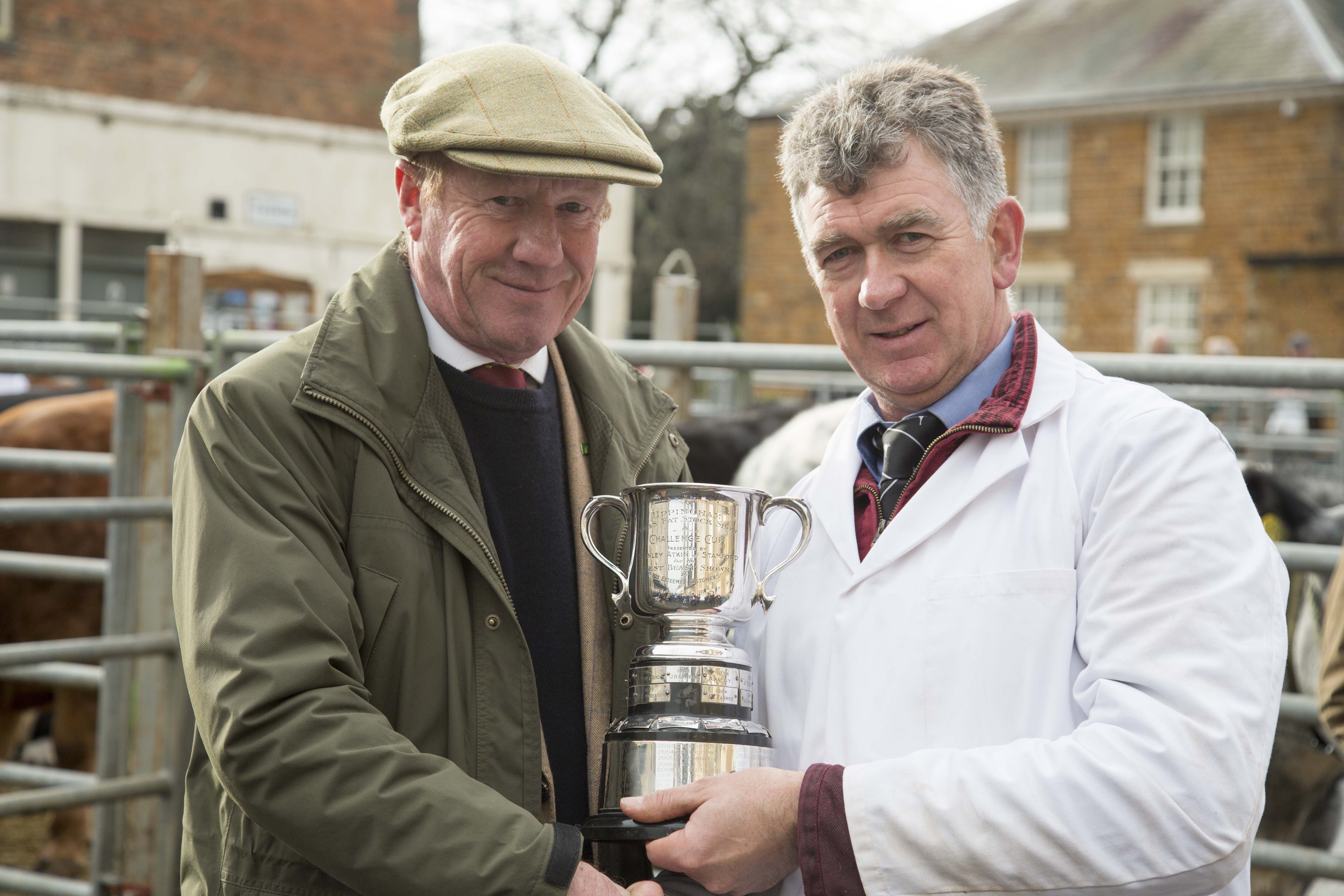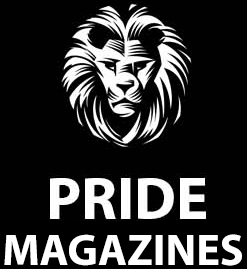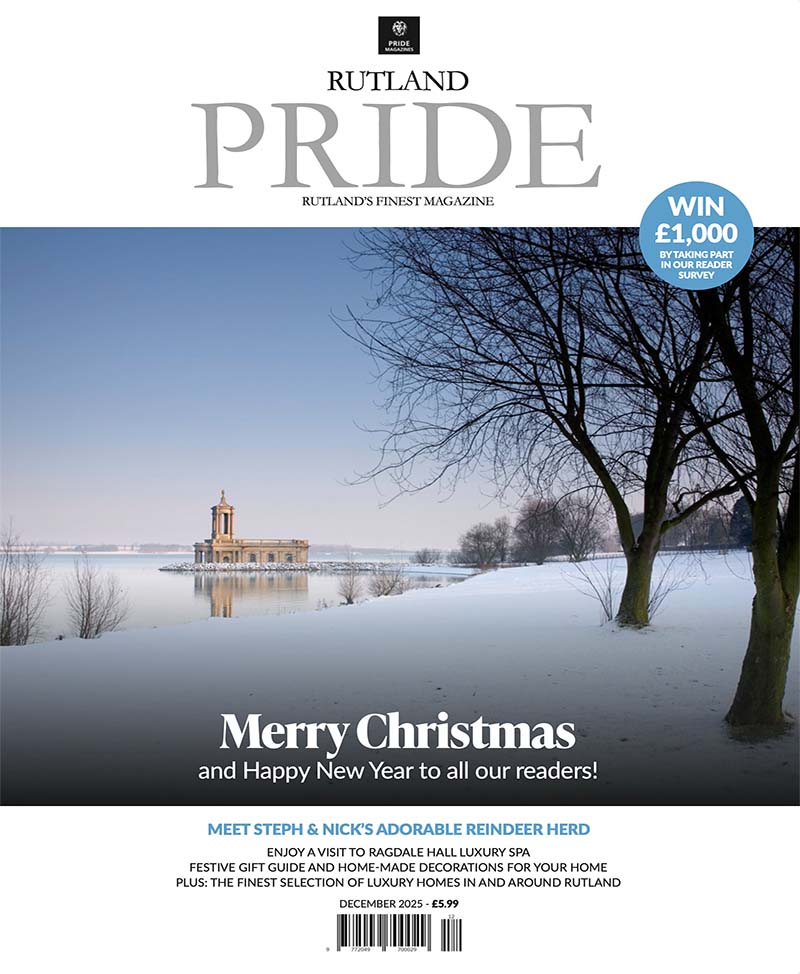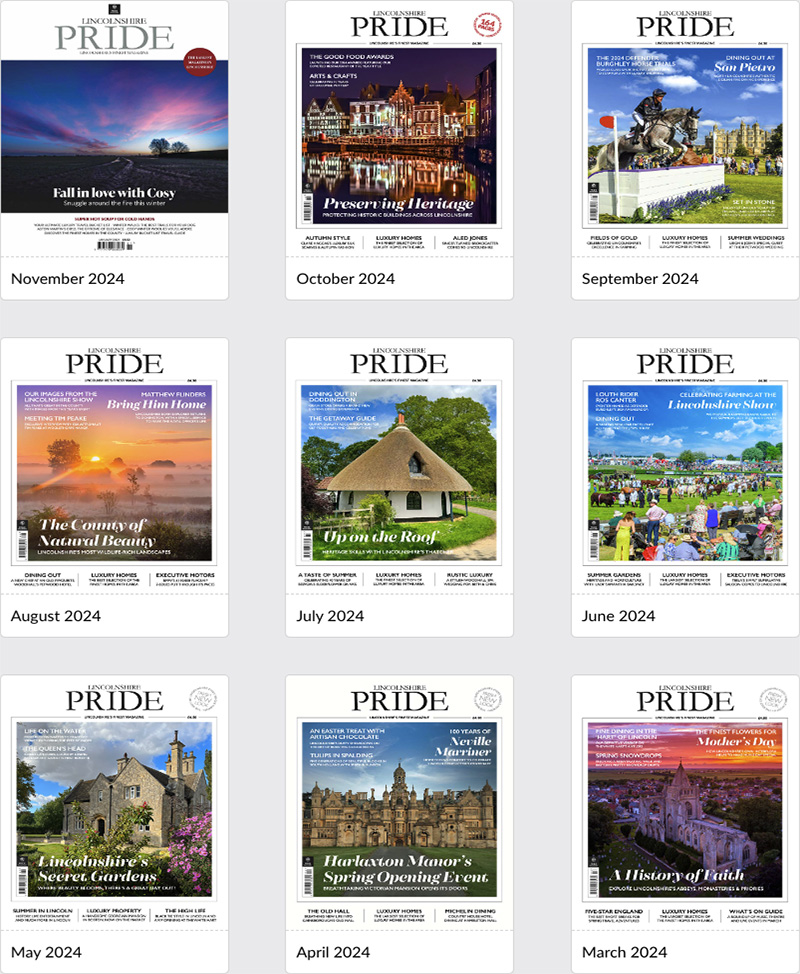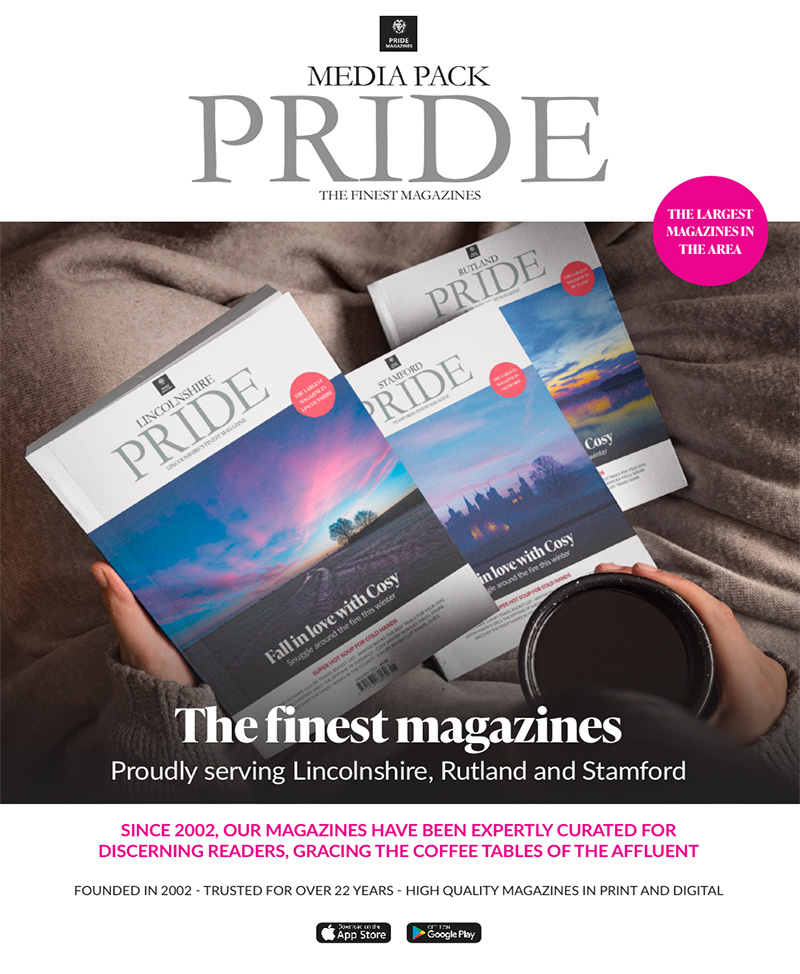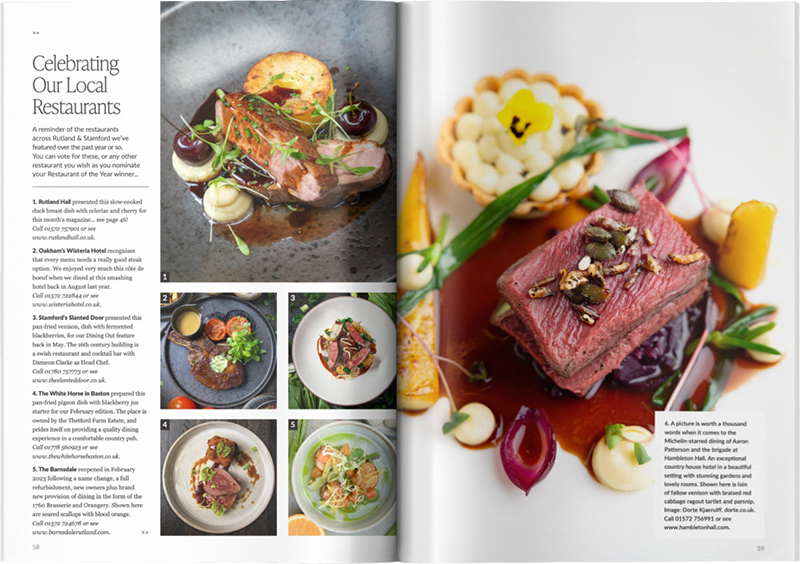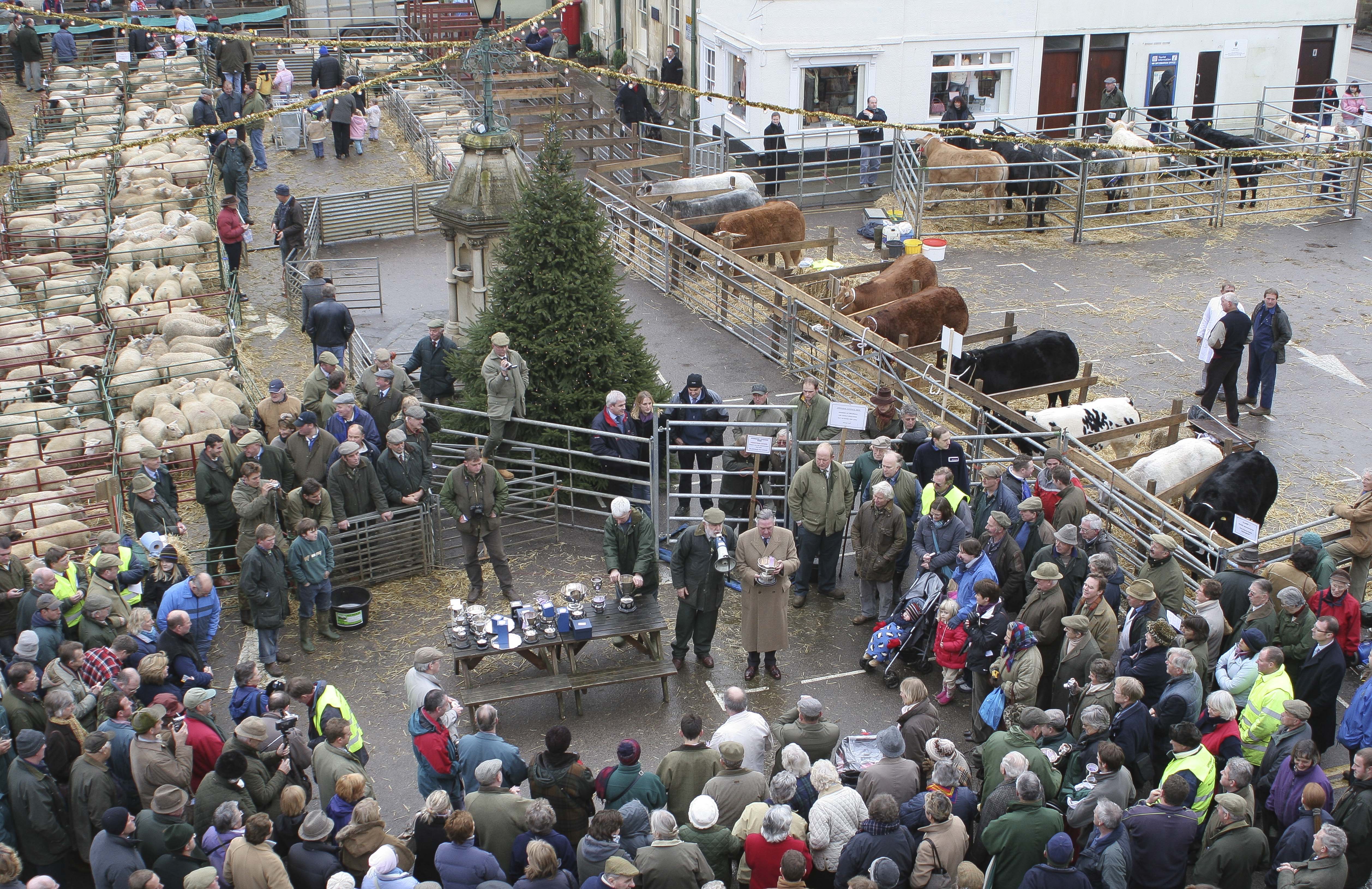
Uppingham Fatstock – Through the Decades
Alas, Covid has claimed another scalp as this year’s Uppingham Christmas Fatstock Show, due to be held on 25th November and the 114th event in its history, has been cancelled. Instead, we’re speaking to Charlie Mason about the Show’s history and why it’s more important than ever to continue the event and celebrate high welfare standards in livestock farming…

Alas, the curse of Covid claims another scalp. This year’s Uppingham Fatstock Show has been cancelled, much to the dismay of all those who enjoy its presence in the town in the run up to Christmas.
Indeed, it’s the Fatstock Show Committee which also donates Uppingham’s Christmas tree each year, a tradition it will uphold despite the cancellation of the Show itself.
Nobody is more disappointed than Chairman of the Show, Charlie Mason. Charlie has been attending the show for nearly 60 years and has been a part of the team organising it each November/December for nearly 40 years.
A true countryman, we joined Charlie in Uppingham just as the decision to cancel the show was taken and just as his winter horde of bramble jelly was reaching boiling point on the stove.
Flanked by Parson Russell Terrier Zeppelin, Charlie sat down to explain over a cuppa the historic importance that fatstock shows had to local communities just prior to Christmas.
“Fatstock shows usually ran concurrently with conventional livestock markets around Christmas time,” he says. “Unlike other shows, which now take place in the summer months in our area, the animals shown generally aren’t pedigrees or rare breeds… with a few exceptions these days in Uppingham.”
“The animals tend to be cross-breeds – bred for the quality of their meat – and entries are presented finished and all ready for slaughter. The original purpose of a fatstock show was to enable stockmen and farmers to present their very best animals to local butchers, who could then purchase by auction the very best fattened stock for their Christmas trade, allowing time to slaughter and hang them ready for the festive table.”
“When butchers purchased animals, they would also take the rosettes to display in their windows, so customers would know they were purchasing the best prize-winning meat. The owners of the animals of course gained status, plus prize money, rosettes and silverware.”
Traditionally, animals at a fatstock show would be auctioned off, following the awarding of prizes, in the cattle market which ran alongside them.
Although most, if not all, livestock markets run fatstock shows on their premises, usually alongside a normal weekly market; as far as we are aware there are only three that still take place as stand-alone events in temporary penning: Uppingham, Dartmouth and Winslow.
Many of the cattle which appear at Uppingham are then shown again and sold at Melton Mowbray’s Fatstock Show which takes place a week or so later.
There are fourteen classes in total: seven for cattle, four for sheep and three for pigs. In 2019 the entries comprised around 20 cattle, 200 sheep and 25 pigs.
“At least one class is reserved for animals sired by a native bull and we’re really happy that native breeds are thriving. Waitrose, Morrisons and other retailers are favouring native breeds and people are beginning to question where their food comes from, which is perhaps why we’re all acknowledging the link between high-welfare farming and food quality.”
Born in Stamford, Charlie’s parents ran the Wheatsheaf Inn from 1953 to 1970 – the pub in which he was raised – and the Cross Keys Inn from 1970 to 1985.
Having worked on farms both locally and as far away as Shropshire, Charlie worked in livestock marketing before taking up a post in 1988 with the Humane Slaughter Association (HSA), a charity which works to improve the welfare of food animals during marketing, transport and slaughter.
Initially his role was carrying out assessments of livestock markets and he became the group’s Technical Director in 2001.
Having served as Uppingham Fatstock Show’s secretary between 1997 and 2008, and as its Chairman from 2013 to the present day, Charlie is conscious of how unconnected consumers have become from their food and how high welfare in farming and caring for livestock has a direct benefit, not just to the animals themselves but to the consumer too, in terms of the quality of their meat.
The cancellation of this year’s Show was made with a heavy heart, given that so few of these events now take place even in rural communities like ours.
The first Uppingham Fatstock Show took place in 1889 and just 18 shows have been cancelled since, owing to the two World Wars and three outbreaks of notifiable disease. It was back in 1949 that a committee got together the resurrect the tradition of Uppingham Fatstock Show post-war.
Chaired by John Blood, the group decided to hold the event a little later than usual on Thursday December 15th 1949. Charlie is still in possession of the note book with the initial minutes recorded in it, which reads: “It was reported that a balance of £51.11.10 was on deposit at Barclays Bank,” and that the show would be “Open to all those feeders of stock who had been grading stock in Uppingham up to the point of August 1949.”
2005 saw the celebration of the 100th Uppingham Fatstock Show with the Rt Hon Lord Vestey being the Chief Guest. It was an especially vigorous celebration that year at the annual dinner, which is held at The Falcon Hotel in the town’s Market Place at around 2.30, following the event.
Recent years have seen the last of the old wooden pens replaced with new metal infrastructure and, with an aim to grow the show when it returns in 2021, the group is looking for more local farmers and landowners to support the Uppingham Fatstock Show to ensure the tradition is kept alive and well.
Former patrons include the Duke of Rutland and the Marquess of Exeter, so perhaps today’s nobility will offer a similar degree of support to the Show for its return next year.
“We’re hoping to be able to do something this year and discussions around that are still taking place,” he says. “But we remain proud that Uppingham is one of the very few towns left which can still hold a fatstock show like ours.
“It shows the area is proud of its farming heritage, proud of its welfare standards and committed to upholding rural traditions.”
